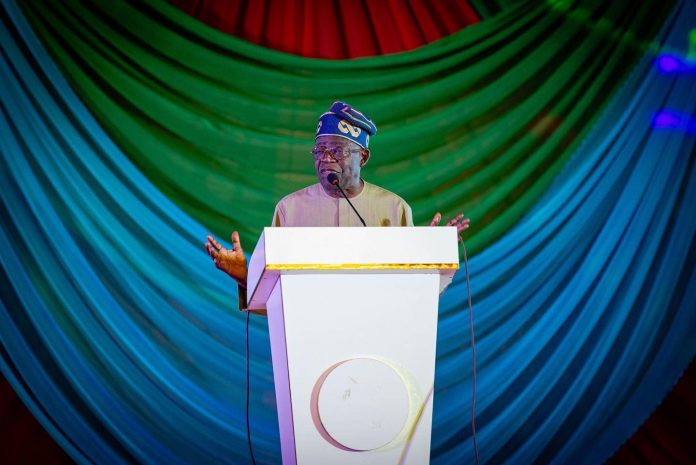President Bola Tinubu has directed that the National Emergency Management Agency (NEMA) distribute food palliative to residents of the Federal Capital Territory (FCT), Abuja.
This was made known on Wednesday by the Minister of state for the FCT, Mariya Mahmoud, during an emergency meeting with stakeholders.
She said the emergency meeting was to arrange some committees for transparency in the distribution of the palliative approved by the President.
The presidential directive comes a few days after some residents of the FCT looted a government warehouse in the capital city and carted away foodstuff from the facility.
According to her: “Yesterday we received this letter from the Presidency through the National Emergency Management Agency (NEMA) and we all know that some few days ago we were at Gwagwa where our warehouses were attacked by some youths in that area and then all we have there has been packed including the roofing, the gates and everything, and machinery that we used to make some of the foods that we were keeping there.
So along that way God Almighty has given us a solution, everybody knows how Mr President Bola Tinubu has been going up and down to see how he will cushion the hardship in the country, especially the issue of food security, we have been having meetings with the ministry of agriculture to get a lot that we have to distribute to people, to tell us how Mr President has his in the heart.
So along this way that the honourable minister of FCT, Barrister Nyesome Wike, was addressed through this letter to call an important meeting with important stakeholders that were highlighted, they are here to see that we arrange some committees for transparency in the distribution of these palliatives that we are about to get, and then the preparation that we need to have before these items are given to FCT for distribution.
This is the reason that we called for this meeting, when we received the letter it said that it had to be handled in two weeks, so the two weeks from the day we received the letter, and we received this letter on the 29th of February, we have already taken one out of it, before the two weeks, FCT will be able to submit all that is required from us.”
Mahmoud however registered her discontentment with the chairmen of the six area councils of the FCT, for coming late to the meeting.
She said: “We were directed to include a different class of people, about 15, and chairmen of area councils are number one on the list, to show you how important they are, they are the people in the grassroots, in fact for me this is for them, this is trying to bring out their imagine, by the time we are going to do this distribution from one area council to another, definitely this may bring their imagine out, then they will know that Mr President is listening to the call and complains of his people and he is answering that call.
So if we don’t help Mr President to achieve this, who will come and do this for us? That’s why they are first on the list, to my surprise they are the last in terms of attendance, because they have not given importance to what it is, and I know I have given a brief on the meeting, I called it an emergency, because it is less than twenty-four hours, but if you look at the content, importance, even if it is two hours you must squeeze and manage to be here. Because you will not want somebody tell you the decision that has been taken for your people on your behalf.”
The FCT chairman of traditional rulers, the Ona of Abaji, His Royal Majesty, Alhaji Adamu Baba Yunusa, assured the minister that as a father, he would call the chairmen to order.
The stakeholders in the committee for the palliative distribution include the chairmen of the area councils, the FCT Emergency Management Agency, Traditional rulers, the Department of State Service, Nigerian Police Force.
Others are, Nigeria Security and Civil Defence Corps, Faith-based Organizations (JNI&CAN), the National Union of Local Government Employees, the Nigerian Red Cross Society, Women’s Associations, Persons with Disability Groups, Youth Associations, Principals of boarding schools, Civil Society Organizations and Media.






